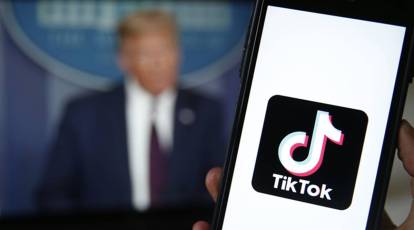U.S. Congress has passed a bill that could lead to a nationwide ban on the popular social media app TikTok. This decision has sparked widespread concern and speculation about what comes next for the app’s millions of American users. Here’s a breakdown of what you need to know about the potential TikTok ban and its immediate implications.
The Bill’s Background
The bill, which has passed both houses of Congress, aims to address national security concerns related to TikTok. Lawmakers have raised alarms over the app’s ownership by ByteDance, a Chinese company, arguing that it poses a risk of data misuse and potential surveillance by the Chinese government. The bill’s primary focus is to safeguard sensitive data and ensure that American users’ personal information remains protected.
Immediate Implications
Following the bill’s passage, the path to an actual ban is not instantaneous. Several key steps need to be completed before TikTok could be officially prohibited in the U.S. Here’s what to expect in the coming weeks and months:
- Presidential Review: The bill now awaits the President’s signature. If signed into law, the administration will be tasked with implementing the provisions of the bill. This could involve negotiations with TikTok to address security concerns or, if necessary, enforce a ban.
- Regulatory Actions: If the bill becomes law, federal agencies such as the Committee on Foreign Investment in the United States (CFIUS) may need to conduct further investigations and regulatory actions. These could include setting deadlines for TikTok to address security issues or face a ban.
- Legal Challenges: TikTok may challenge the ban in court, arguing that it violates constitutional rights or is based on unfounded security concerns. Legal battles could delay or alter the implementation of the ban.
- Technical Adjustments: In anticipation of potential regulatory changes, TikTok may take steps to restructure its operations or offer additional transparency regarding data handling. These efforts could influence the final outcome of the regulatory review.
Impact on Users
For TikTok’s millions of users in the U.S., the potential ban raises several questions. Here’s what users might experience if the ban is enacted:
- Service Disruption: If a ban is implemented, users will likely face service disruptions, with the app becoming inaccessible in the U.S. This could have a significant impact on content creators and businesses that rely on the platform for their marketing strategies.
- Data Privacy: If the ban is delayed or avoided through regulatory changes, TikTok may introduce new measures to enhance data privacy and comply with U.S. regulations. This could include more rigorous data protection protocols and greater transparency.
- Alternative Platforms: Users may seek alternatives to TikTok, turning to other social media platforms such as Instagram Reels, YouTube Shorts, or emerging apps that offer similar features.
Political and Economic Reactions
The potential ban has sparked a range of reactions from political leaders, tech industry insiders, and international observers:
- Political Reactions: Some lawmakers view the ban as a necessary step to protect national security, while others criticize it as an overreach that could stifle free expression and innovation.
- Economic Impact: The ban could affect the broader tech industry, including advertisers and content creators who have built their brands on TikTok. Additionally, it may have economic implications for ByteDance and its global operations.
- International Relations: The decision could impact U.S.-China relations, as it reflects ongoing tensions over technology and data security. The response from China and other countries may influence future international tech policy discussions.
Looking Ahead
The situation remains fluid, and the timeline for a potential TikTok ban is uncertain. As the bill moves through the legislative and regulatory processes, stakeholders from various sectors will be closely watching the developments. Users and businesses should prepare for possible disruptions and explore alternative platforms in case of a ban.
In the meantime, the debate over TikTok’s future underscores the complex intersection of technology, national security, and free speech. The outcome will likely set important precedents for how digital platforms are regulated in the U.S. and beyond.



